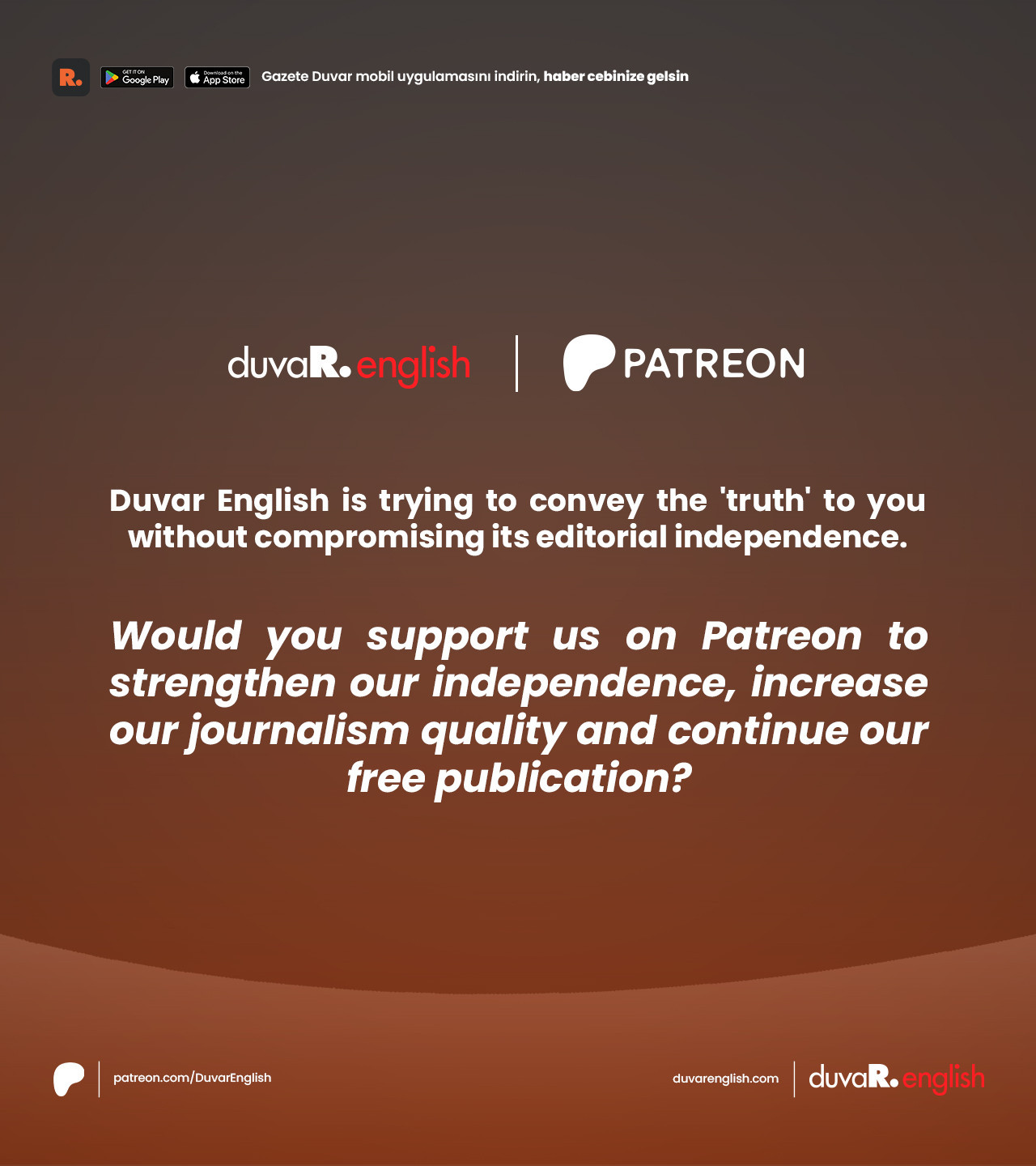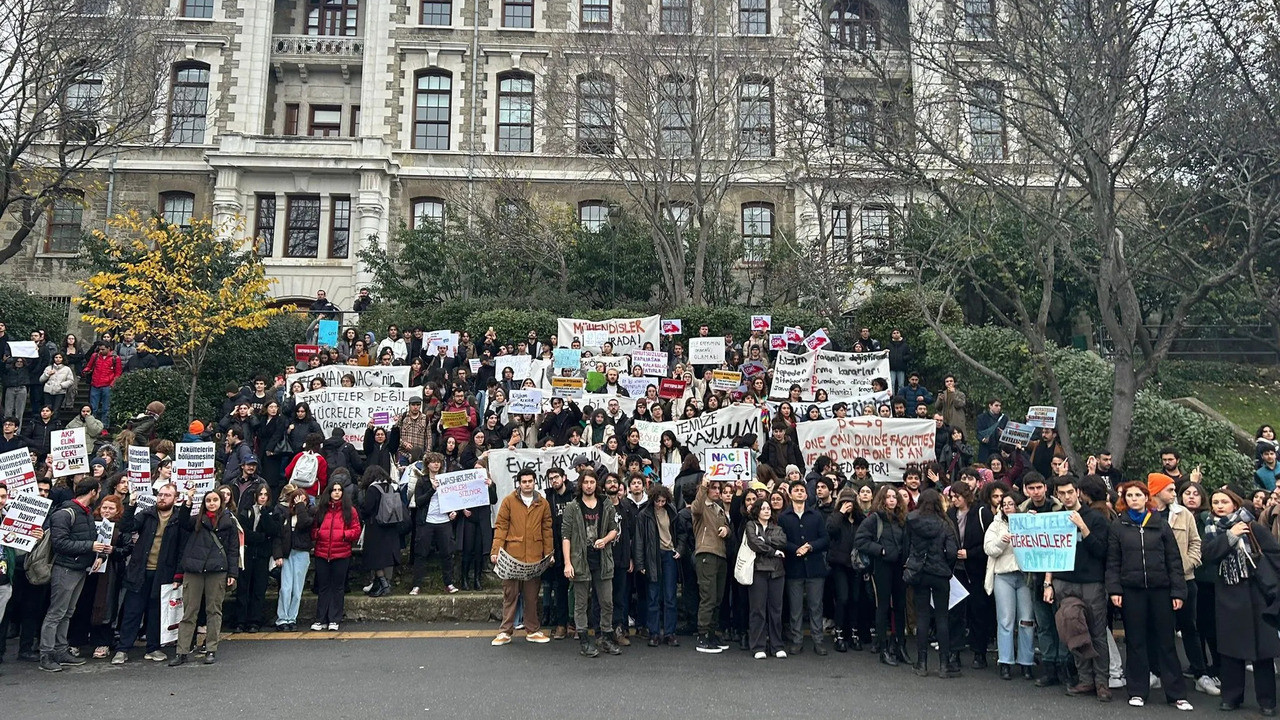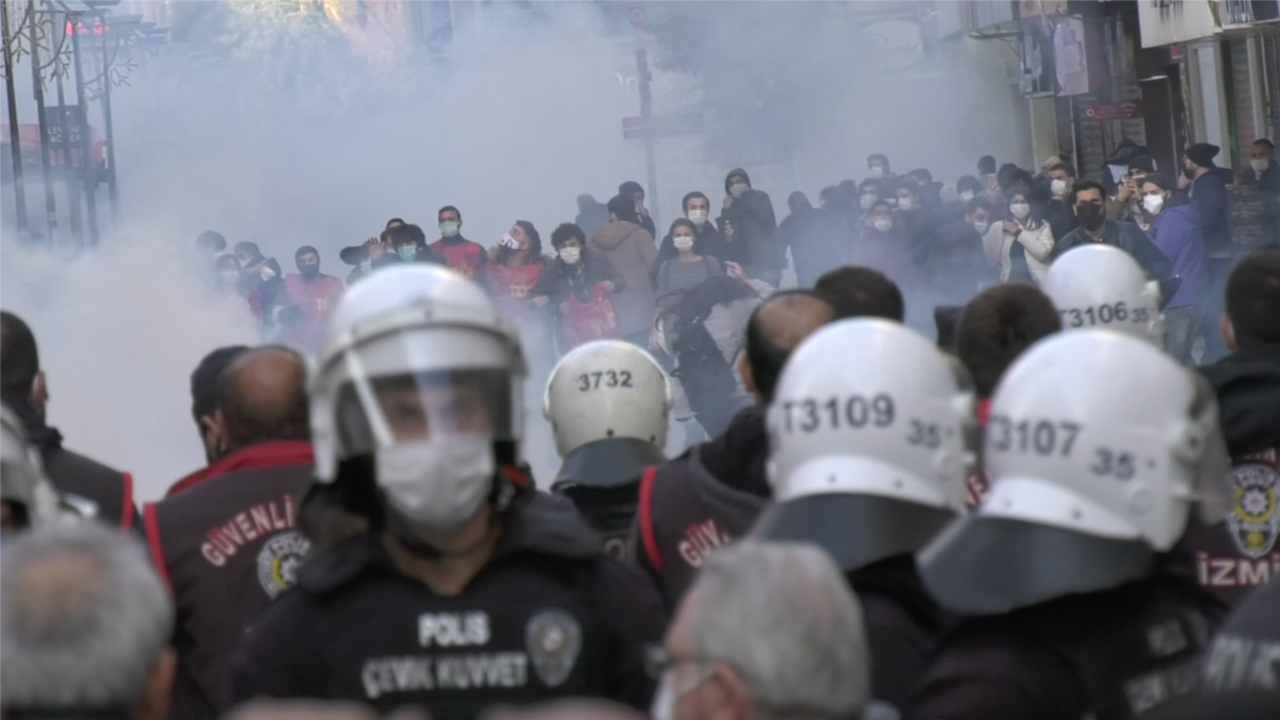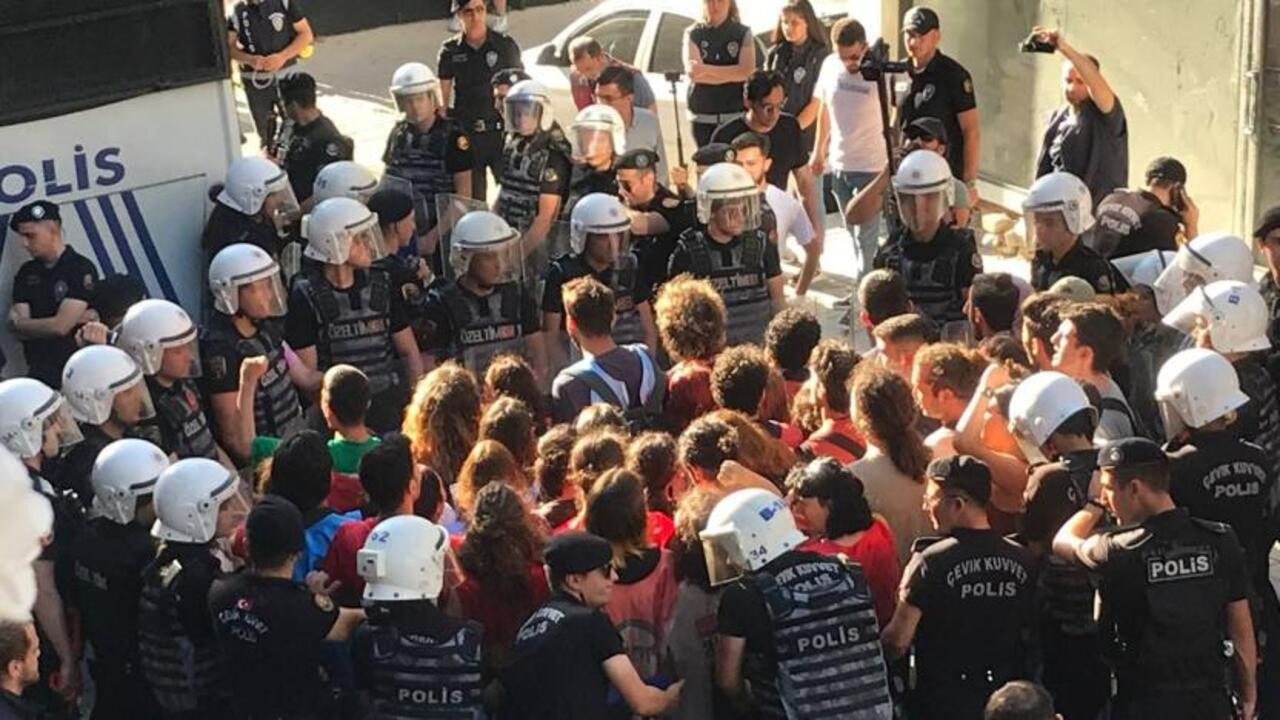Turkish top court lifts disciplinary punishment for campus political activity
Turkey’s Constitutional Court (AYM) has lifted the disciplinary punishments enacted by the Higher Education Council for political activity on university campuses such as congregating and posting banners without permission, deeming such punishment “unconstitutional and arbitrary.”
Duvar English
The Constitutional Court (AYM) of Turkey ruled to lift disciplinary punishments in the Law on Higher Education sought for students' political activity on university campuses, reported Deutsche Welle (DW) Turkish on April 19.
Article 54 of the Law on Higher Education listed “distributing leaflets, posting banners or posters without permission” as punishable offenses. The AYM on Feb. 22 found the article unconstitutional and ruled to rescind it.
The ruling stated that "subjecting thought to permission before expression and categorically repressing expression by submitting it to sanctions" were severe limitations to the freedom of expression.
“Such limitations would lead to severe self-censorship,” noted the court.
Distributing leaflets, and hanging posters or banners were methods that allowed people to reach wide masses with less effort, opined the ruling.
Therefore, the court found it was a “categorical restriction of freedom of expression” to impose a permission requirement and link these actions to disciplinary sanctions.
Furthermore, preventing the potential harm these actions could bring was possible with milder and less severe precautions than suspension.
Thus, this article in the Higher Education Law restricted freedom of expression to an ever-narrowing frame and did not serve as a mandatory requirement of a democratic society.
The AYM also found unconstitutional the provision on organized meetings that the Law on Higher Education subjected to a suspension ranging from one week to one month.
The penalty restricted students’ right to assembly and organization, emphasized the court.
The Law on Higher Education listed “Operating on behalf of or assisting an organization established to commit a crime, while not being a member” as an offense punishable by expulsion.
The AYM ruled that the provision violated the presumption of innocence as outlined in the constitution, and concluded that no student could be expelled without due process proving any such crime.
Turkey’s main opposition Republican People’s Party (CHP) on Feb. 2023 brought the articles of the Higher Education Law to the Constitutional Court.
The appeal concerned certain amendments made in 2020, which were met with criticism from the Turkish and international academic community for further curtailing academic freedoms in the country.
The effects of the amendment were most apparent in the Boğaziçi University protests of 2021, where students were suspended and even expelled for participating in on-campus political activities.


 Turkish court stops rectorate banning students from entering campus over fear of protestsEducation
Turkish court stops rectorate banning students from entering campus over fear of protestsEducation Turkish court gives jail term to four people for protesting Boğaziçi University rector appointmentHuman Rights
Turkish court gives jail term to four people for protesting Boğaziçi University rector appointmentHuman Rights Turkish court arrests six students for distributing leaflets for Suruç Massacre commemorationHuman Rights
Turkish court arrests six students for distributing leaflets for Suruç Massacre commemorationHuman Rights